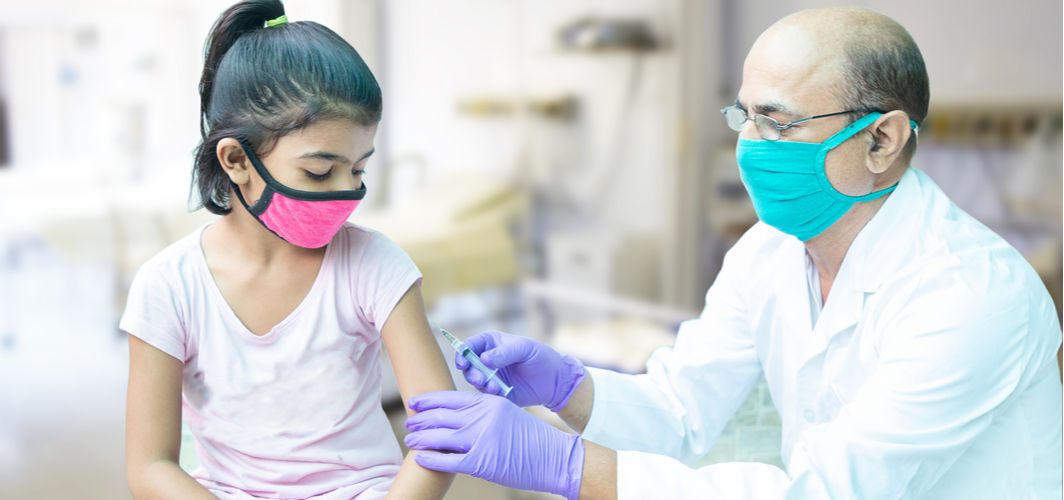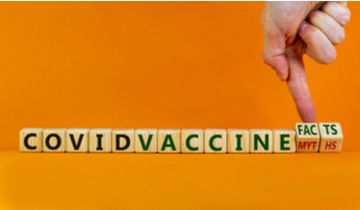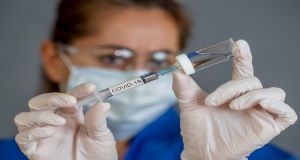COVID-19 Vaccines
Why Young and Healthy Adults Should Get Vaccinated Against COVID-19
4 min read
By Apollo 24/7, Published on - 21 June 2021, Updated on - 18 October 2022
Share this article
1
47 likes

The devastation caused by the second wave of COVID-19 has highlighted the dire need to ramp up vaccination in India. Experts suggest that unless a significant section of the population is immunized, the third and successive waves of COVID-19 will remain a possibility. They also say that for India to achieve herd immunity, it is imperative to vaccinate its young population.
As we have seen already, the second wave of COVID-19 took a heavy toll on young people. Although most of them recovered relatively quickly, there were some who were not so fortunate and lost their lives. There are also others who continue to suffer from long-term complications of the disease. Despite all this, there are still a few young individuals who are averse to getting vaccinated. There are several important reasons for young adults to get vaccinated, alongside high-risk populations.
1. COVID-19 infection may trigger long-term complications
It is true that young people have a relatively low risk of a severe COVID-19 infection when compared to elderly people or those with underlying medical conditions. However, scientific evidence suggests that the young population may be at an equal risk of long COVID i.e., long-term consequences of the disease. Some of the long-haul problems being observed in young COVID-19 survivors include respiratory problems, loss of taste and smell, brain fog, etc. Over time, these symptoms have the potential to adversely affect the quality of life. Therefore, young people should get vaccinated as quickly as possible.
2. COVID-19 infection can turn a healthy immune system on its head
Most young and healthy adults have strong immune systems. In most cases, having a healthy immune system is a good thing as it can protect us against the majority of infection-causing pathogens. Nevertheless, in some cases, a vigorous immune system can backfire by triggering a cytokine storm. Cytokines are small proteins released by the immune system in response to an infection.
A cytokine storm occurs when a hyperactive immune system releases an abnormally high quantity of cytokine proteins into the blood too quickly and starts attacking all cells, including the healthy ones, indiscriminately. The storm can result in severe inflammation, life-threatening organ damage, and even death. Doctors treating COVID-19 patients say that cytokine storms are a major factor contributing to the COVID-19 deaths in the young and healthy population.
3. Not all young people can be deemed healthy
In India, a significant percentage of young people suffer from health-impacting behavior and conditions such as malnutrition, obesity, asthma, diabetes, heart disease, tobacco use, harmful alcohol use, other substance use, etc. All these behaviors and conditions can put them at higher risk of severe COVID-19 complications and death.
4. The virus will continue to mutate unless everyone gets vaccinated
The emergence of the new SARS-CoV-2 variants has proved that the longer the virus circulates in the population, there is a risk that it will continue to mutate and lead to newer and more dangerous strains. While the COVID-19 vaccines will likely provide immunity against these variants, their effectiveness may take a hit. Scientists say that there is a possibility that the existing vaccines may not work against some of the future variants of the virus. Therefore, it is important for everyone, including young adults, to get vaccinated as soon as possible.
5. Getting vaccinated is a low-cost and more effective alternative to expensive treatment
For many people, a COVID-19 infection can be an expensive proposition. Costly treatments, expensive medications, and lost working hours can put a heavy strain on an individual’s financial resources. On the other hand, a COVID-19 vaccine is a rather cheap alternative that not only saves money but also reduces the likelihood of severe disease.
6. Not getting vaccinated will put others’ lives at risk
There is a reason why scientists say that nobody is safe until all of us are safe. People who are not vaccinated can carry and spread the virus to others. Since none of the COVID-19 vaccines offer 100% protection, there is a possibility that even vaccinated people may get infected by unvaccinated people. Unvaccinated people can also put at risk the lives of those who cannot be vaccinated for medical reasons. They can also infect children who are currently ineligible for COVID-19 vaccination. By getting vaccinated, young people will not only save their own lives but those of others as well.
Conclusion
In 2021, India witnessed a deadly second wave of COVID-19. Unlike last year, when mostly elderly people and those with underlying medical conditions were impacted, the second wave took a heavy toll on the young population. While many young individuals developed severe illness or lost their lives, some continue to reel from the long-term debilitating effects of this deadly contagion. Experts say that unless the vaccination drive is ramped up significantly, the possibility of third and subsequent waves remains intact. To avoid these waves, India must try to achieve herd immunity by vaccinating its young population as quickly as possible.
If you have any questions on the Coronavirus, you can speak to our experts through an online doctor consultation.
You can also explore a range of products to keep you safe from the Coronavirus.
COVID-19 Vaccines
Leave Comment
Recommended for you

COVID-19 Vaccines
COVID Vaccines Approved For Children: All You Need To Know
Read here to know the vaccines that have been approved by the Indian government for vaccinating kids below the age of 18.

COVID-19 Vaccines
Anyone aged over 45 years can now get vaccinated for COVID-19
The Indian government recently announced that everyone aged 45 years and above would be eligible for COVID-19 vaccination in the country, starting from 1st April 2021.

COVID-19 Vaccines
Part II: Debunking COVID-19 Vaccine Myths with Facts
Given the significance of the vaccination in ending the pandemic, it is important to bust some of the myths that have come to be associated with the vaccines.
Subscribe
Sign up for our free Health Library Daily Newsletter
Get doctor-approved health tips, news, and more.
Visual Stories

COVID-19 Vaccine Factbox: Oxford/AstraZeneca
Tap to continue exploring
Recommended for you

COVID-19 Vaccines
COVID Vaccines Approved For Children: All You Need To Know
Read here to know the vaccines that have been approved by the Indian government for vaccinating kids below the age of 18.

COVID-19 Vaccines
Anyone aged over 45 years can now get vaccinated for COVID-19
The Indian government recently announced that everyone aged 45 years and above would be eligible for COVID-19 vaccination in the country, starting from 1st April 2021.

COVID-19 Vaccines
Part II: Debunking COVID-19 Vaccine Myths with Facts
Given the significance of the vaccination in ending the pandemic, it is important to bust some of the myths that have come to be associated with the vaccines.